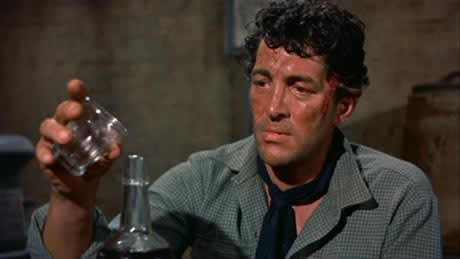To many, Rio Bravo is a pinnacle the ultimate Western, a distillation of the genres thematic tropes, starring iconic mans man John Wayne and the ultimate Howard Hawks film, a meditation on the bonds men share amongst themselves, allowing only the occasional female outsider to play on the fringes. But personally, I prefer other Westerns (the vast, breathtaking vistas of John Ford, the surreal artfulness of Sergio Leone) and I prefer other Hawks films (the gritty gangster realism of the original 1932 Scarface, the light delight of 1938s Bringing Up Baby or 1940s His Girl Friday). But thats not to disparage the craft, personal perspective or influence of Bravo, which brought the Western back from the brink of box office death and led to a decade-long resurgence that indeed, allowed for the rise of Leone. Part of its "ultimate Western appeal is that Rio Bravo includes something for everyone: Waynes laconic drawl, as he moves from the young buck of Stagecoach into his later, mature roles; an unexpectedly good performance by Dean Martin as a deputy trying to crawl out of a bottle; and young superstar Ricky Nelson (The Adventures of Ozzie and Harriet) as the young gun in town. Its got a feisty, sarcastic Hawks-ian woman in Angie Dickenson ⎯ in fact, Hawkss women were so of a type that several of Dickensons lines are lifted from his own film To Have and Have Not (starring Lauren Bacall), made 15 years earlier. Rio Bravo has been hugely influential because of its perfect commercial balance: its got Wayne showing his sensitive side; Martin and Nelson bonding and breaking into song; character actor Walter Brennan providing comic relief; it ends in a rousing shoot-em-up; and even the locations are familiar, since it was shot at Old Tuscon Studios, home of many familiar Westerns, including Gunfight at the OK Coral. Warner has put together an impressive looking package that includes promotional stills, a vintage comic book and publicity booklet but the "extras arent enough to justify its two-disc presentation. An episode of Men Who Made the Movies on Hawks is interesting, as is a featurette on the "making of "Bravo but the spotlight on Old Tuscon amounts to little more than a filmed tourist tour. A lot of effort goes into selling Bravo as a landmark of filmed entertainment but personally, Im hitting the dusty trail. Plus: commentary by director John Carpenter and critic Richard Schickel.
(Warner)Rio Bravo
Howard Hawks

BY James KeastPublished Jun 21, 2007



